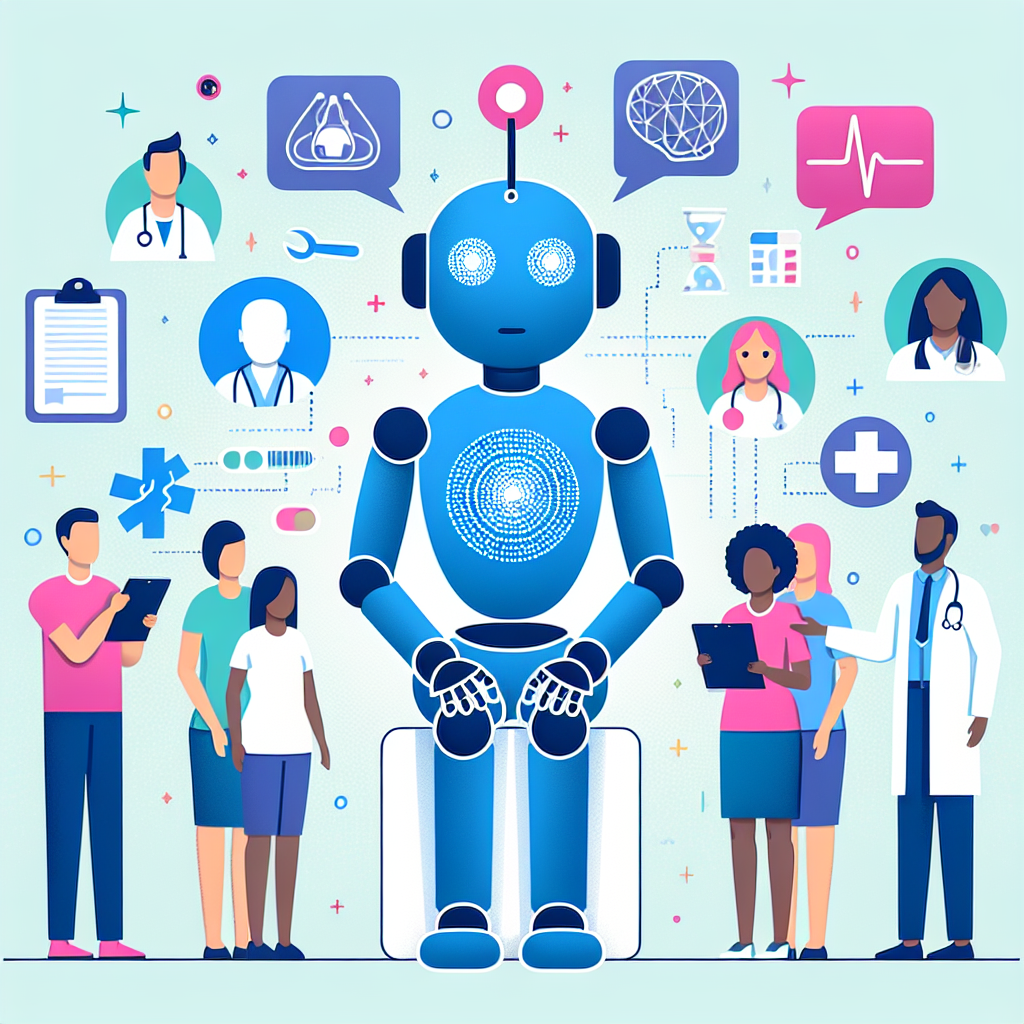Conversational AI in Healthcare: Improving Patient Education and Empowerment
Introduction
In recent years, the healthcare industry has seen a significant shift towards incorporating technology to improve patient care and outcomes. One of the most promising technologies in this space is conversational AI, which uses natural language processing and machine learning to interact with users in a human-like way. Conversational AI has the potential to revolutionize healthcare by providing patients with personalized education, support, and guidance throughout their healthcare journey.
Patient Education and Empowerment
Patient education is a crucial aspect of healthcare that is often overlooked. Studies have shown that patients who are well-informed about their health condition are more likely to adhere to treatment plans, have better health outcomes, and experience improved quality of life. However, traditional methods of patient education, such as pamphlets and brochures, are often ineffective in engaging patients and providing them with the information they need.
Conversational AI offers a solution to this problem by providing patients with personalized, interactive education that is tailored to their individual needs and preferences. By using natural language processing, conversational AI can engage patients in a two-way conversation, answering their questions, providing them with relevant information, and guiding them through their treatment plan.
For example, a patient with diabetes can use a conversational AI chatbot to learn about their condition, understand how to manage their blood sugar levels, and receive reminders to take their medication. The chatbot can also provide personalized recommendations based on the patient’s medical history and lifestyle, such as tips for healthy eating and exercise.
In addition to educating patients, conversational AI can also empower them to take control of their health and make informed decisions about their care. By providing patients with access to their health data, treatment options, and resources, conversational AI can help them become active participants in their healthcare journey.
Benefits of Conversational AI in Healthcare
There are several benefits to using conversational AI in healthcare, including:
1. Improved Patient Engagement: Conversational AI can engage patients in a more interactive and personalized way than traditional methods of patient education, leading to higher levels of engagement and adherence to treatment plans.
2. Enhanced Patient Experience: By providing patients with access to information and resources in real-time, conversational AI can improve the overall patient experience and satisfaction with their care.
3. Increased Efficiency: Conversational AI can automate routine tasks, such as scheduling appointments and refilling prescriptions, freeing up healthcare providers to focus on more complex and critical aspects of patient care.
4. Cost-Effectiveness: By reducing the need for in-person consultations and other manual processes, conversational AI can help healthcare organizations save time and money.
5. Improved Outcomes: By educating and empowering patients to take control of their health, conversational AI can lead to improved health outcomes and a higher quality of life.
Frequently Asked Questions
Q: Is conversational AI secure and compliant with healthcare regulations?
A: Yes, conversational AI in healthcare is designed to comply with strict data privacy and security regulations, such as HIPAA in the United States. Healthcare organizations can implement measures to ensure that patient data is encrypted, stored securely, and only accessed by authorized personnel.
Q: Can conversational AI replace human healthcare providers?
A: While conversational AI can provide valuable support and education to patients, it is not intended to replace human healthcare providers. Instead, conversational AI can complement the work of healthcare providers by automating routine tasks and providing patients with access to information and resources.
Q: How can patients access conversational AI in healthcare?
A: Patients can access conversational AI in healthcare through various channels, such as chatbots on websites, mobile apps, and voice-activated devices. Healthcare organizations can also integrate conversational AI into their electronic health records systems to provide patients with seamless access to information and support.
Q: What are some examples of conversational AI applications in healthcare?
A: Some examples of conversational AI applications in healthcare include virtual health assistants, medication reminders, symptom checkers, and personalized health coaching programs. These applications can help patients manage chronic conditions, track their health metrics, and make informed decisions about their care.
Conclusion
Conversational AI has the potential to transform healthcare by improving patient education and empowerment. By providing patients with personalized, interactive support and guidance, conversational AI can help them become active participants in their healthcare journey and achieve better health outcomes. As healthcare organizations continue to adopt and integrate conversational AI into their systems, we can expect to see significant advancements in patient care and engagement in the years to come.

